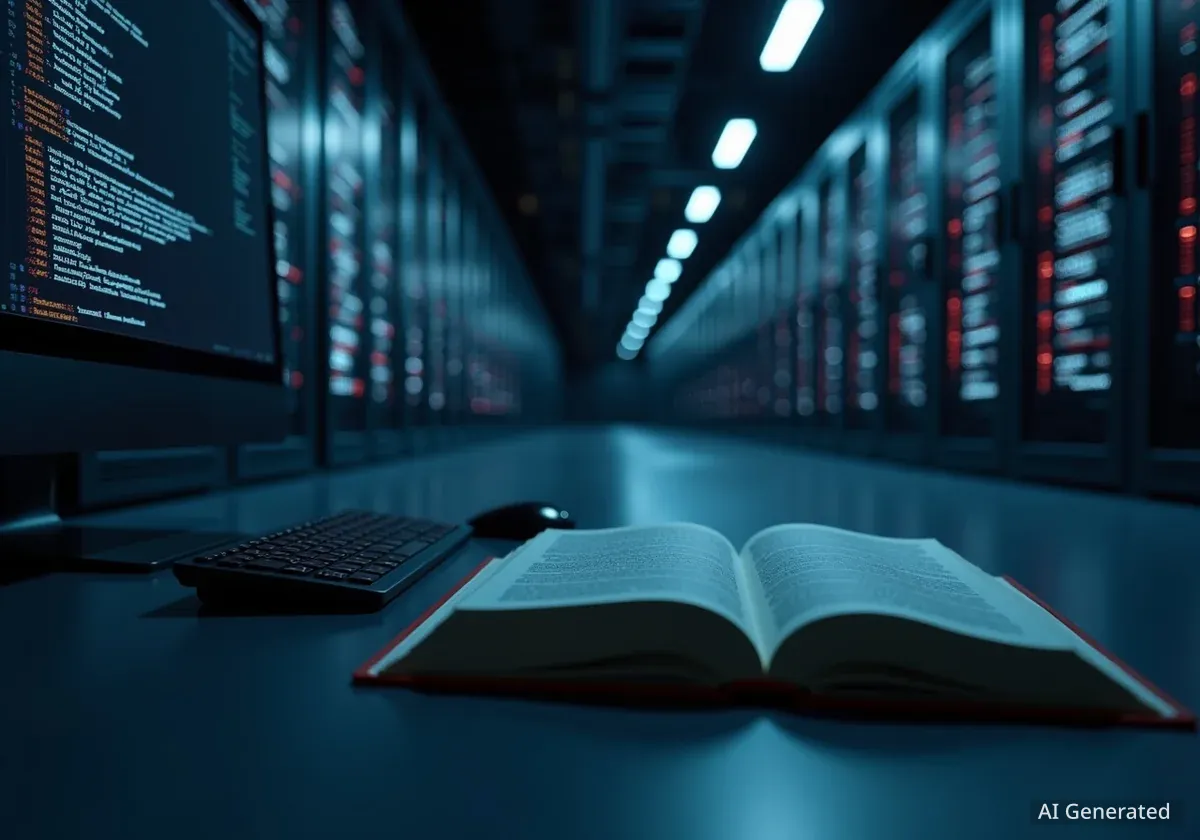Elon Musk's new artificial intelligence venture, Grokipedia, has launched to immediate scrutiny, with multiple reports indicating that its articles are direct copies of content from Wikipedia. The platform, promoted as a significant improvement over the user-edited encyclopedia, appears to be heavily reliant on the very source it aimed to surpass.
Investigations into the newly launched service revealed that numerous pages on Grokipedia are nearly identical, word-for-word, to their counterparts on Wikipedia. This has sparked a widespread debate about the originality and reliability of content generated by large language models (LLMs) and the ethical implications of using existing, human-created work without clear and prominent attribution.
Key Takeaways
- Elon Musk's new AI-powered encyclopedia, Grokipedia, has been found to contain articles that are direct copies of Wikipedia pages.
- Examples include pages for the PlayStation 5 and MacBook Air, which are reportedly identical to the Wikipedia entries.
- The Wikimedia Foundation, the non-profit behind Wikipedia, has commented on the situation, highlighting the reliance of new AI tools on its existing database.
- The incident raises broader concerns about the accuracy, originality, and potential for misinformation from large language models (LLMs).
Direct Copying Raises Questions of Originality
Shortly after Grokipedia went live, users began to notice striking similarities between its content and that of Wikipedia. In some cases, the text was not merely similar but an exact replica. Pages for popular consumer products like the PlayStation 5 and the Lincoln Mark VIII were identified as being copied line-for-line from Wikipedia.
While some of these pages include a small notice at the bottom stating, “The content is adapted from Wikipedia, licensed under Creative Commons Attribution-ShareAlike 4.0 License,” the presentation has drawn criticism. Many argue that positioning Grokipedia as a superior alternative while using copied material is misleading.
Lauren Dickinson, a spokesperson for the Wikimedia Foundation, which operates Wikipedia, commented on the findings, stating, “Even Grokipedia needs Wikipedia to exist.”
This reliance underscores a fundamental challenge for AI content generators: they require massive datasets of human-created information to function, and Wikipedia is one of the largest and most structured sources available for training.
The Challenge of AI Hallucinations
Large language models like the one powering Grokipedia are designed to predict the next most likely word in a sentence, creating text that appears fluent and coherent. However, this predictive process is not based on an understanding of facts. This can lead to a phenomenon known as "hallucination," where the AI confidently states incorrect information, invents sources, or creates plausible-sounding but entirely false narratives.
Users Report Widespread Inaccuracies
Beyond the issue of plagiarism, users testing the capabilities of Grok and other LLMs have reported significant problems with factual accuracy. When prompted to generate biographies, the AI models frequently invent details or misstate facts. Several individuals have shared their experiences of asking an LLM about themselves, only to receive a biography filled with errors.
These errors range from minor embellishments to major fabrications. Some users were credited with books they never wrote, awards they never received, or even careers in entirely different fields. In one notable instance, an AI model told a user he was a British geologist who had served as an astronaut on an Apollo mission—all of which was false.
Fact vs. Plausibility
Experts in AI explain that LLMs are not built for factual recall but for pattern recognition and text generation. Their primary goal is to produce an output that looks like a correct answer, rather than one that is a correct answer. This distinction is critical to understanding their limitations and potential for spreading misinformation.
This tendency to generate plausible but untrue information is a core limitation of current AI technology. OpenAI, a leading AI research lab, has itself acknowledged that hallucinations are an inevitable part of how these models operate, suggesting that achieving 100% accuracy may not be possible with the current architecture.
Wikipedia's Human Element vs. AI's Speed
The controversy has highlighted the fundamental differences between AI-generated content and human-curated knowledge bases like Wikipedia. While Wikipedia is not without its own flaws, its model is built on a foundation of human oversight, citation requirements, and a rigorous, often lengthy, debate process among editors.
One former Wikipedia contributor described the process as a gathering of “pedantic nerds saying ‘well, ACTUALLY’ to each other until the heat death of the universe.” While tedious, this process of constant verification and discussion is what helps ensure that the information presented is backed by verifiable sources.
The Risk of a Polluted Information Ecosystem
The debate around Grokipedia is part of a larger conversation about the future of information on the internet. As AI tools make it easier to generate vast quantities of text, there is a growing concern that the web could become flooded with low-quality, inaccurate, or entirely fabricated content.
- Erosion of Trust: If users cannot distinguish between human-verified facts and AI-generated falsehoods, trust in online information could decline significantly.
- Feedback Loop: AI models are trained on existing internet data. If that data becomes increasingly polluted with AI-generated errors, future models could be trained on flawed information, creating a cycle of deteriorating accuracy.
- The “Good Enough” Problem: For many users, slightly inaccurate information may be seen as “good enough” for their purposes, leading to a gradual acceptance of lower standards for truth and accuracy.
While proponents of AI argue that the technology will improve and these early issues will be resolved, critics remain skeptical. They contend that the inherent nature of predictive text models makes them fundamentally unreliable as sources of factual information. As Grokipedia's launch demonstrates, the promise of an AI-driven information revolution still faces significant and foundational challenges.





